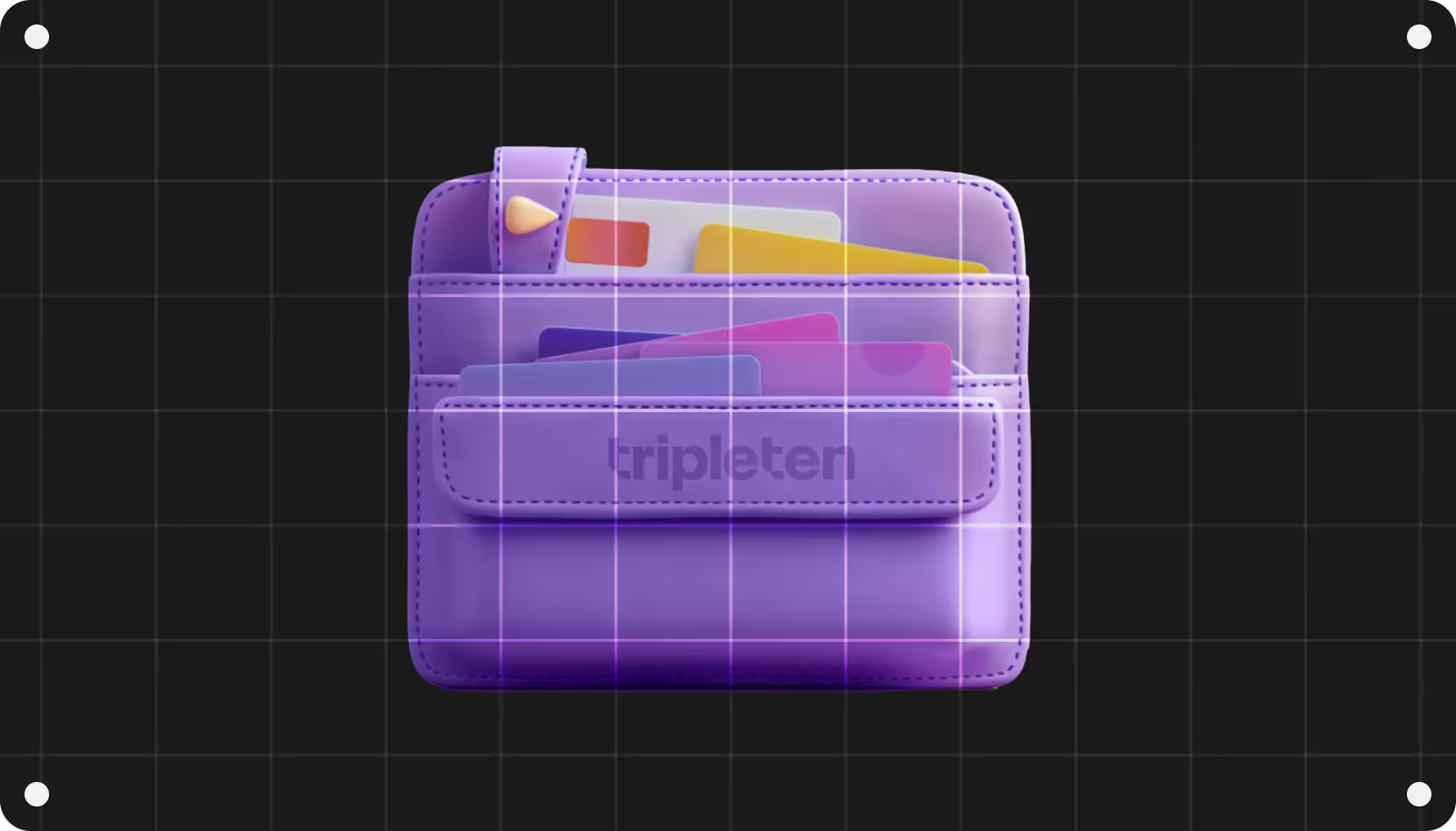

Despite tech layoffs, demand for software engineers continues strong with 129,200 annual openings projected through 2034. The career prospects don't stop there—entry-level salaries are up 8-12% from 2024, and remote work opportunities remain prevalent, with 80% of roles offering hybrid flexibility.
But while the future looks bright, many factors can influence your earning potential as a junior software developer. Here’s a breakdown of key considerations: industry, geographic location, and additional pay.
Entry-level software engineer salaries by industry
The entry-level software engineering market in 2025 reveals that industry and sector has the biggest impact on job salary, with annual compensation ranging from $75,000 in the lowest tier industry to $250,000 in the highest paying industry—a difference of $64.90 per hour.
Unsurprisingly, fields offering premium pay deal with emerging technologies and specialized domains. Frontier AI labs, for example, lead the market with an average entry-level salary of $210,000, followed by big tech cloud infrastructure at $185,000, and ad tech at scaled platforms at $140,000.

The top 10 highest-paying industries to break into
1. Frontier AI labs – $210,000 average
Frontier AI lab companies like OpenAI and Anthropic are setting a new bar for compensation as they compete aggressively for talent capable of developing foundational models, large language models, and breakthrough AI systems. While the average salary is $210,000 across the industry, Anthropic is raising the stakes by offering $350,000 total compensation (base salary of $225,000) for entry-level engineers.
Salary range: $170,000 - $350,000
Popular entry-level roles:
- AI Research Engineer
- Machine Learning Engineer
- Deep Learning Engineer
- Computer Vision Engineer
- NLP Engineer
2. Big tech cloud infrastructure – $185,000 average
Demand for cloud-native, multi-cloud, and infrastructure automation talent remains fierce in the big tech cloud infrastructure industry. Entry-level engineers are making anywhere between $150,000 to $220,000 base salary. Competition remains intense among hyperscalers (Amazon Web Services, Google Cloud Platform, Azure), as well as cloud-native startups or AI firms tackling elements of infrastructure workloads.
Salary range: $150,000 - $220,000
Popular entry-level roles:
- Cloud Software Engineer
- DevOps Engineer
- Site Reliability Engineer
- Kubernetes Engineer
- Infrastructure Engineer
3. Ad tech at scaled platforms – $140,000 average
Ad tech platforms like Google Ad Manager, Xandr, and Meta (as well as fintech and AI firms building low-latency infrastructure) compete for talent that can help them excel on real-time bidding and revenue optimization capabilities. Margins are tighter in this category, but entry-level software engineers can make anywhere from $120,000 to $160,000, depending on their specialization.
Salary range: $120,000 - $160,000
Popular entry-level roles:
- Ad Tech Engineer
- Programmatic Developer
- Data Pipeline Engineer
- Real-Time Bidding Engineer
- Attribution Modeling Engineer
4. Fintech/financial services – $137,500 average
Fintech’s average compensation hovers around $137,500 in the US, while specialized roles in trading systems and embedded payments can earn closer to $200,000 with bonuses. Because of the highly regulated nature of fintech and financial services sectors, competition for promising junior software engineers can be particularly intense in hubs like New York City.
Salary range: $100,000 - $175,000
Popular entry-level roles:
- Backend Engineer
- Full-Stack Developer
- Quantitative Developer
- Risk Engineer
- Algorithmic Trading Developer
5. Blockchain technology – $130,500 average
Whether crypto natives, DeFi platforms, or Web3 infrastructure providers, blockchain firms need full-stack developers, smart contract engineers, and cryptography experts for their business to function. Due to the sector’s relatively small engineering talent pool, competition for specialized developers is extremely fierce. The average annual salary for entry-level roles is $130,500, but total compensation may also include tokens and equity.
Salary range: $121,000 - $140,000
Popular entry-level roles:
- Blockchain Developer
- Smart Contract Developer
- DeFi Developer
- Cryptocurrency Developer
- Layer 2 Developer
6. AI and machine learning – $125,000 average
AI and machine learning (ML) roles remain near the top of compensation curves, especially among SaaS companies looking for ways to add AI capabilities to their platforms. These firms, from startups to big tech, aggressively bid for talent that is able to ship novel models and scale inference. The result is an average annual salary of $125,000 for entry-level foundational model and research software engineers.
Salary range: $100,000 - $150,000
Popular entry-level roles:
- ML Engineer
- AI Software Engineer
- Data Engineer
- Research Scientist
- MLOps Engineer
7. Cyber security – $117,500 average
With global breaches frequently making news headlines, cyber security is an essential function for companies to invest in — regardless of geographic location or industry. Entry-level positions make a starting salary between $90,000 to $145,000; however, the scarcity of adversarial and cloud-security talent makes industry competition especially pointed among the defense, finance, and big tech sectors.
Salary range: $90,000 - $145,000
Popular entry-level roles:
- Security Software Engineer
- Cyber Security Analyst
- Application Security Engineer
- DevSecOps Engineer
- Network Security Engineer
8. Developer tools and data platforms – $117,500 average
Developer tooling and data platform builders tackling observability, ETL (extract, transform, load), and SDKs (software development kits) attract back-end and/or infrastructure talent with specialties in scaling and APIs (application programming interfaces). Compensation for entry-level roles averages $117,500, with competition coming from cloud, AI infrastructure startups, and big tech, all of whom want to own foundational layers within their products.
Salary range: $95,000 - $140,000
Popular entry-level roles:
- Platform Engineer
- API Developer
- DevTools Engineer
- SDK Developer
- Toolchain Engineer
9. Healthcare technology – $115,000 average
In health technology, compliance, privacy, and domain complexity are causing bandwidth challenges for employers. Salaries notably lag versus other industries, and entry-level healthcare software engineers may begin at $90,000. However, companies offering machine learning in drug discovery or health AI are pushing compensation bands higher. Additionally, growing pressure for cross-domain talent coming from biotech and tech can make it difficult for health tech organizations to find the talent they need, so they’re expanding their compensation offerings.
Salary range: $90,000 - $140,000
Popular entry-level roles:
- Healthcare Software Engineer
- Medical Software Developer
- Clinical Software Engineer
- Digital Health Engineer
- Telemedicine Developer
10. Autonomous vehicles and robotics – $115,000 average
Autonomous vehicle (AV) and robotics roles demand cross-disciplinary skills, including those in perception, control, and embedded capabilities. Entry-level hires are in demand among legacy automakers, robotics startups, and AI labs looking to either play catch up or disrupt sectors. Foundational expertise in real-world systems, safety, and simulation command higher average starting salaries for entry-level positions, with the higher range peaking at $140,000 a year.
Salary range: $90,000 - $140,000
Popular entry-level roles:
- Robotics Software Engineer
- Autonomous Systems Engineer
- Embedded Systems Engineer
- Computer Vision Engineer
- Motion Planning Engineer
Where other industries rank
Mid-tier industries ($100,000 - $115,000):
11. Biotech and pharmaceutical tech - $115,000
12. Banking/traditional finance - $112,500
13. AR/VR/metaverse - $110,000
14. Enterprise SaaS - $105,000
15. E-commerce/retail tech - $105,000
16. Gaming/entertainment - $105,000
Lower-tier industries ($75,000 - $102,500):
17. Oil, gas, and energy trading tech - $102,500
18. Insurance - $102,500
19. Quantum technology - $100,000
20. Telecommunications - $100,000
21. Clean energy and sustainability tech - $100,000
22. Consulting/professional services - $87,500
23. Aerospace/defense - $85,000
24. Government/public sector - $75,000
Top paying locations for entry-level engineers
While nearly one-half of all tech professionals work fully remotely, the other half needs to visit the office at least once per week. If you’re planning on working hybrid or in-house, you may want to consider relocating to a region where the tech industry is thriving — like these top hubs.
New York City: 20-25% above national average
- Average Range: $114,000 - $176,000
- Top Companies: Goldman Sachs, JPMorgan, Google, Meta
San Francisco Bay Area: 25-35% above national average
- Average Range: $150,000 - $240,000
- Top Companies: Google, Meta, Apple, OpenAI, Anthropic
Seattle: 15-20% above national average
- Average Range: $130,000 - $200,000
- Top Companies: Amazon, Microsoft, Snowflake
Austin: 10-15% above national average
- Average Range: $110,000 - $170,000
- Top Companies: Tesla, AMD, Meta, Google
Compensation beyond base salary
Total compensation packages often include
- Stock options/RSUs: 10-40% of total compensation
- Signing bonuses: $10,000 - $50,000 for top companies
- Annual bonuses: 5-20% of base salary
- Benefits: Comprehensive health, 401k matching, professional development
Career guidance for new graduates
Making the leap from applying to jobs to salary negotiations with a prospective employer can feel daunting as an entry-level software engineer. But it’s also a major career milestone. Here are some tips to help you make the most of it, so you can start your new career fairly compensated and in position for future growth.
How to maximize your starting salary
Part of accepting any job offer for a salaried position is negotiating starting pay. This shouldn’t be an intimidating step, but rather an opportunity to hit a number or goal you have in mind to kickstart your entry-level software engineering career. These approaches can help you justify the number you’re looking for, not only when applying to positions, but also when accepting an offer.
1. Build your portfolio with business impact top of mind
Even for entry-level roles, developers who quantify their impact stand out significantly from those who just list technologies. That’s where an externship can come into play, but even if you only have a passion project under your belt, you can still find concrete ways to show your skills.
Action steps:
- Add a “Business Value” section to each project in your portfolio.
- Include metrics that show improvements (e.g. “Reduced load time by 40%”).
- Provide details like lines of code, users served, performance improvements, etc.
2. Research salary bands before applying to a role
Companies typically have some wriggle room in their salary bands, but the amount varies wildly by company, role, and level. Startups, for example, often have more flexibility than larger corporations. Across the board, though, flexibility is often on the lower end for junior roles.
Action steps:
- Use Levels.fyi to filter salaries by company, location, and “New Grad/Junior” specifically.
- Check Glassdoor, but take the result with a grain of salt since results skew lower.
- Join “Junior Dev” Discord and Slack communities and ask what people were offered.
3. Ask about total compensation in the first call
In tech, the salary number is often just the base of what you get paid. For example, while the listed range might be $70,000 to $80,000, with stock, bonuses, and benefits adding $15,000 to $25,000, that brings the total compensation much closer to ~$100,000 in annual pay.
Action steps:
- Ask the recruiter in the screening call to share the total compensation structure.
- Take notes on signing bonuses, equity vesting schedules, 401(k) matching, and health insurance costs.
- Calculate your “real take-home” figure accounting for all the details you uncover.
4. Don’t hedge yourself in during the negotiation stage
If you pitch a low number, companies will tend to pin you to it, even if they know you’re undervaluing yourself. Over half of employers (53%) are open to negotiating salaries, especially for entry-level positions. And it’s totally worth it — negotiating can result in an 11-20% increase in pay!
Action steps:
- Create a script for responding to compensation questions, for example: “I’m seeing ranges from $X to $Y for similar roles [10% higher than you’d accept]. I’m flexible based on the complete package.”
- Practice saying it out loud 10 times at least; it’ll feel weird at first.
- Tap a friend, mentor, or professional connection to practice in a natural conversation.
5. Wait 24 hours before responding to any offer
Whether you’re considering multiple offers (lucky you!) or over the moon to secure a competitive position, it’s best to let an offer letter breathe overnight. You can respond immediately to a recruiter to let them know it’s in your inbox and you’ll respond on the following business day.
Action steps:
- Review the offer letter in full; don’t skip the total compensation details.
- Make sure you understand details like vesting cliffs, non-compete radius, duration, and IP ownership for side projects.
- Look for red flags like multi-year cliffs on equity, broad non-competes, and IP clauses covering weekend projects.
Skills in high demand
In addition to practical tips like learning how to research and negotiate total compensation, you can also improve your attractiveness to employers as an entry-level candidate by cultivating in-demand skills. For example, take these five capabilities that the highest paying software developer roles require: AI, cloud platforms, DevOps tools, security, and data engineering.
- AI/machine learning technologies
These include programming languages like Python, Java, R, and C++, big data analysis tools like Apache Flink, machine learning platforms like TensorFlow, deep learning programs like PyTorch, and AI security best practices.
- Cloud platforms
Familiarity in Amazon Web Services (AWS), Google Cloud Platform (GCP), and/or Microsoft Azure is a must if you’re considering a career in cloud computing, since these platforms are used by most businesses in the US. - DevOps tools
A basic DevOps technical skillset includes C++ or Java, Kubernetes, Docker, and Terraform, as well as network optimization and security, since they oversee the entire development process to ensure software and IT are aligned.
- Security
Cyber security skills include application security, network security and management, risk management, vulnerability management, incident investigations, DevSecOps, and preparing to attain your CompTIA Security+ certification. - Data engineering
Similar to AI and machine learning, technical skills include SQL, Apache Spark, Kafka, predictive algorithms, statistical techniques, data mining methods, and soft skills like collaboration and attention to detail.
It’s in your grasp
Deciding where to focus your career as an entry-level software engineer is a big decision—but filtering your aspirations through compensation can help make it easier. Especially as the marketplace changes in response to trends like AI.
Without a doubt, the 2025 entry-level software engineering market reflects the continued digital transformation across industries. Whether you decide to prioritize the stability of a traditional sector, or the earning potential of an emerging one, your success depends on strategic planning and continuous skill development. TripleTen is here to help—check out our software engineering bootcamp to learn more.
Data sources compiled from levels.fyi, 6figr.com, ZipRecruiter, Indeed, Glassdoor, and industry-specific salary surveys. Salary ranges represent 2025 market data for US-based positions with 0-2 years of experience.
FAQ
How much do software interns make in the US?
According to Indeed, the average salary for a software engineer intern is $34.25 per hour, or $79,600 per year, in the US. The top five highest paying cities for software developer interns were Mountain View, CA, Sunnyvale, CA, New York, NY, Boston, MA, and Pheonix, AZ.
How much do recent graduate software engineers earn?
As a new graduate, software engineers in the U.S. make an average base salary of $147,524, or $71 an hour, according to ZipRecruiter. Broken down by tech hubs, in Mountain View, it’s $174,031; in Boston, it’s $160,270; and in New York City, it’s $161,396.
Can I become a software engineer without a degree?
Yes! In fact, 79% of tech employers hire candidates without a traditional background — like graduates of professional bootcamps. That’s because these companies need (and want) demonstrable skills, with 68% saying that hard skills are crucial for successful candidates and 65% saying soft skills are likewise paramount.
What level is a junior software engineer?
A junior software engineer is considered to be entry-level. That means possessing 0-2 years of relevant experience spanning externships or internships, portfolio projects (either with a company or personal or open-source), or part-time work. Most employers require demonstrable proof of a candidate’s skills during the hiring process, so developing these while upskilling is critical.
What do you call a beginner software engineer?
Beginner software engineers can hold a variety of titles, including: Junior Software Developer, Entry-Level Software Engineer, Entry-Level Software Developer, or Junior Software Engineer. They can also be known by having the words “Associate” or “New Grad” in their title. If you’re unsure about the seniority level of a job posting, reference the required years of experience.


.avif)

.avif)




.avif)




.avif)







